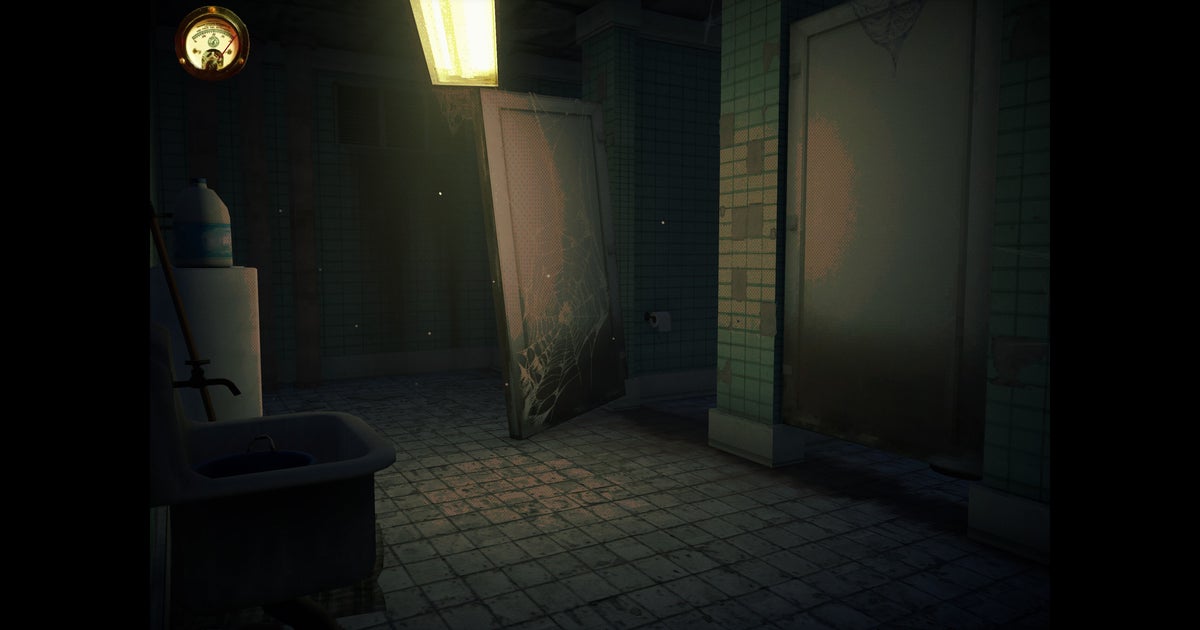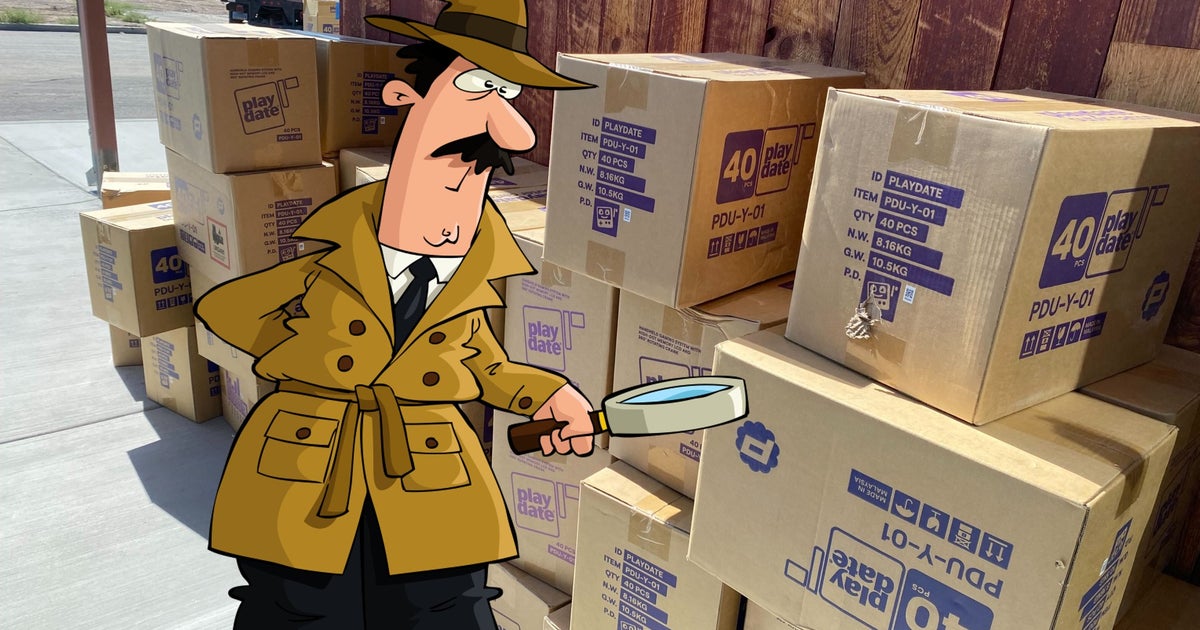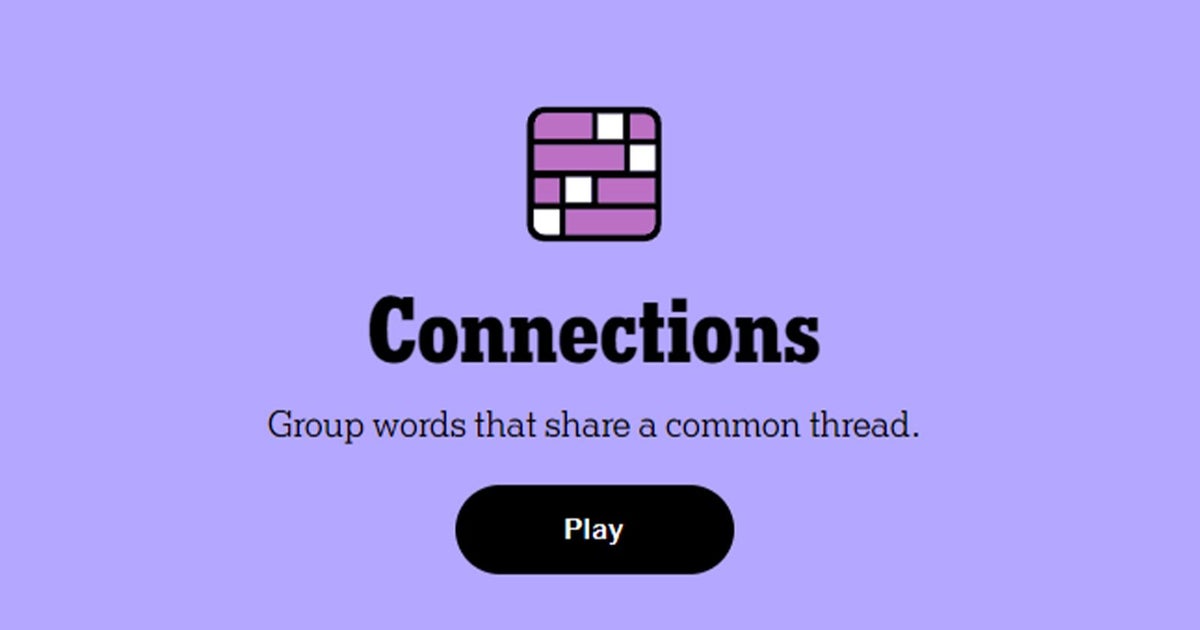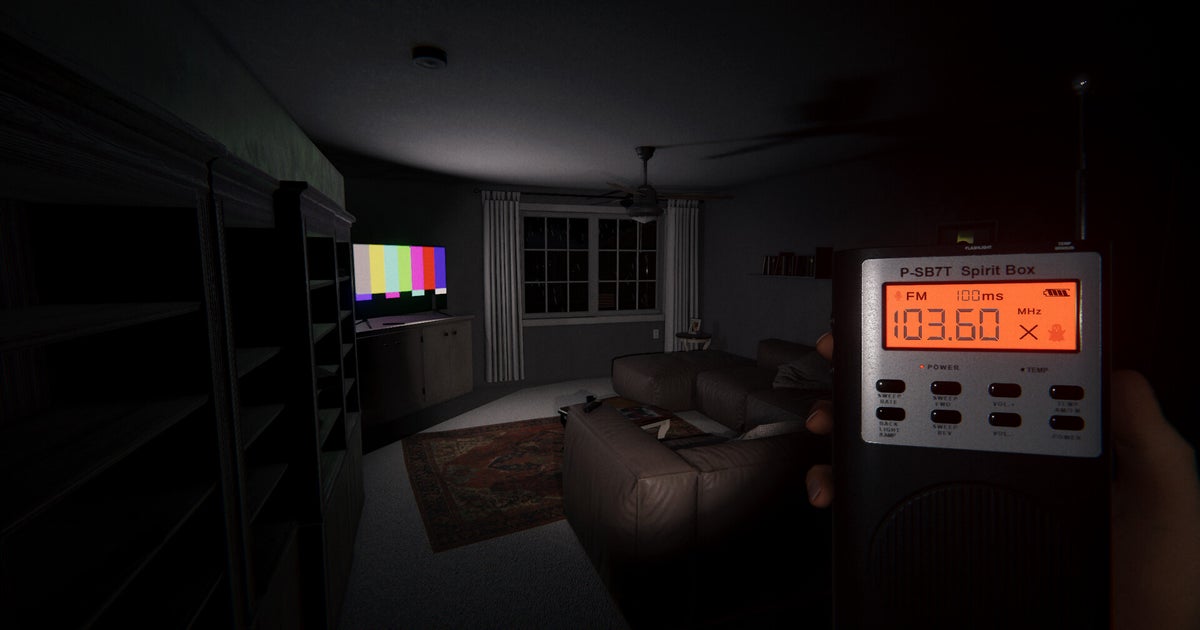With a name like Toilet Spiders, it’s not exactly hard to work out what’s going to be creeping you out in a game like this, or where those horrors are going to appear from. Really, it should be the least scary horror game you ever play, as you know exactly what you’re up against the moment you load it up. But nothing, I’d argue, quite prepares you for the sheer number of possibilities that exist within this abandoned and blooded nuclear facility, as this is a place with a truly obscene number of toilets inside it, and a worrying number of important items to find beneath their grimy, cobwebbed lids.
Quite why the former inhabitants of this place decided to leave their keys, security passes and spare lightbulbs in the one place these giant, eight-legged death traps can actually get you is a question that never gets answered. The only working theory I have is that, judging by the lo-fi blood smears everywhere, everyone must have been dragged arse-backwards and disembowelled down the pipework, leaving nothing behind except the contents of their conveniently clean and empty pockets. Whatever the reason for their somewhat contrived location, however, this is ultimately a game about lifting toilet lids and hoping against all hell that there isn’t a spider waiting there to eat you alive and gobble you down along with them.
Considering that’s essentially all this game is, Toilet Spiders is a surprisingly effective little horror experience. Like the Fatal Frame games (or Project Zero for us in the UK) before it, its tension comes almost exclusively from that moment of anticipation before anything actually scary takes place – only instead of watching your hand slowly reach out toward an ominous doorknob, say, here you’re psyching yourself up to lift a gosh darn toilet seat. Indeed, I spent most of my time in Toilet Spiders just staring at shut toilet lids while the all-caps instruction to ‘OPEN TOILET’ jittered nervously at the bottom of the screen, craning my ears (in vain, I think) to see if I could hear anything scuttling around in the pipework, or indeed, detect any other sign to indicate whether I was about to be nobbled or not.
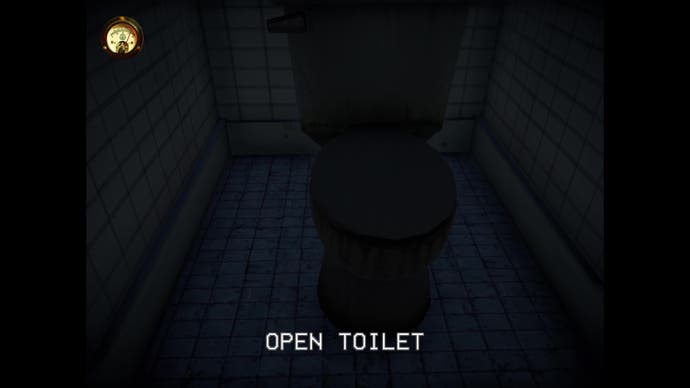
That nobbling, I think, comes down to pure chance at the end of the day, which is perhaps Toilet Spider’s biggest weakness in its current early access state. An alternative name might have been ‘Toilet Gambling’, or ‘Spider Roulette’, as there simply didn’t seem to be any rhyme or reason to when the spiders appeared or not. And yet, the game gives you the impression there should be. When you first begin your foray into this cursed facility, for example, you can pick up a Geiger counter that immediately ticks into action the moment you cross the threshold into the many, many grungy bathrooms where a spider is present. But there’s always a spider present somewhere, and there are no obvious deviations in the meter’s needle movement to reliably discern if one toilet is safer than another. That’s when I started listening out for them through my PC speakers, which maybe helped on some occasions, but most of the time I could have sworn I’d be safe, there it was, waiting for me all along.
There are a couple of ways you can fight back against the spiders, though they’re also quite easy to waste due the uncertainty around a spider’s apparent location. Lightbulbs, for example, can be thrown at shut lids to try and ‘scare’ spiders away, while flashbang grenades will instantly detonate the moment a spider tries to attack you after an unfortunate lid reveal. Both of these are in preciously short supply throughout each major section of the facility, though, and if you don’t have a flashbang to hand, there’s simply no escaping your fate – the screen starts to shake, a black spider emerges, and that’s it, you’re gone.
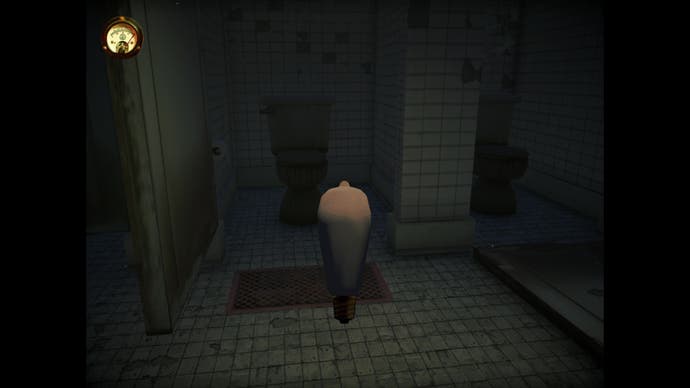
Given you only have three ‘lives’ (or ‘volunteers’, as the game calls them) and more toilets to investigate than any one facility should rightly have in each of its three main sections (I’m not kidding, nearly every room has an accompanying bathroom attached, sometimes with more toilets than there would be actual people working there, I swear to god), the odds just seem too stacked against you for it to be truly terrifying. Perhaps I just had bad luck on my runs, but it was always the last toilet in every section that yielded up the necessary key I needed in order to advance, and it all became a bit ‘laborious toilet inspection’ by the end as opposed to being genuinely chilling. Plus, when progress persists between your run of three test subjects, you can simply sprint back to your last location, retrieve your equipment, and carry on. It kills any prior sense of trepidation or unease.
I should note that the spiders themselves aren’t scary in the slightest. Sure, some will leap out toward the screen at you, while others will merely raise an ominous leg toward your eyeline before the screen cuts to black. But in their current early access form, they’re big cartoonish-looking things that are about as threatening as a warm slice of toast – which I’m actually totally fine with, to be honest (and no, there isn’t an arachnophobia mode here, alas). Rather, their appearance has more of an inevitable ‘gotcha’ vibe than anything else, and after 30 minutes or so, I’d developed more of a playground tag relationship with them than anything remotely jump-scary. Honestly, googling ‘toilet spiders’ will give you more of a fright.
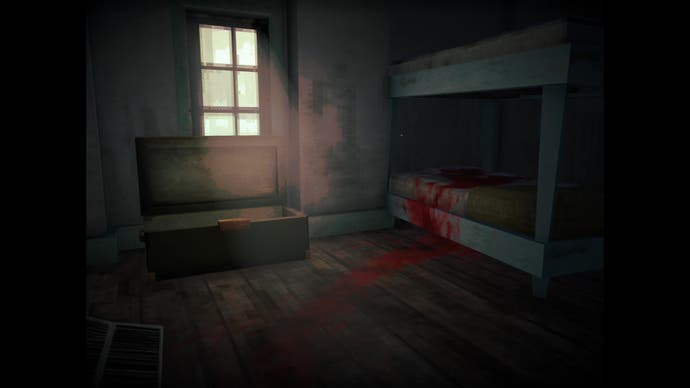
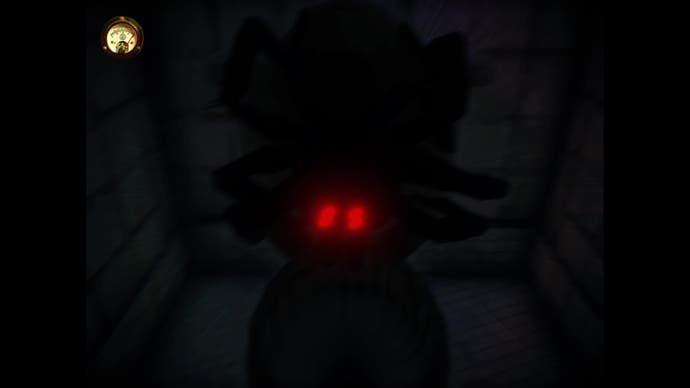
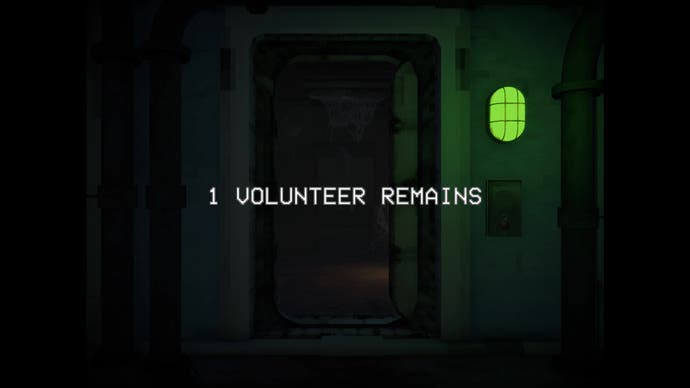
This all works against the overall horror of Toilet Spiders, and ultimately, the experience just becomes a little too familiar too quickly. Even as objects and spider locations get shuffled around between each run of three to mix things up a bit, Toilet Spiders never quite goes far enough to make a fresh attempt feel totally new, as there are always the same number and type of objects in each part of the facility, and usually not all that far from where you found them last time. You can definitely tell it’s the work of one developer – which Fullbright as a studio has since been reduced to after co-founder Steve Gaynor’s messy parting of ways with the Open Roads Team last year. Solo development is no bad thing in itself, of course, but the narrow lens that its horror has been constructed with certainly feels a little lacking and one-note compared to the games that Fullbright’s name is most closely associated with.
For a fiver, I had a decent hour’s fun with it, but as I hit the end credits and blew the place to smithereens, I felt no great urge to play it again. And as the opening salvo to Gaynor’s new anthology series of “short, strange games” under his Fullbright Presents label? It’s going to take a lot more convincing before these games feel worthy to trade on the success of the likes of Gone Home and Tacoma.
